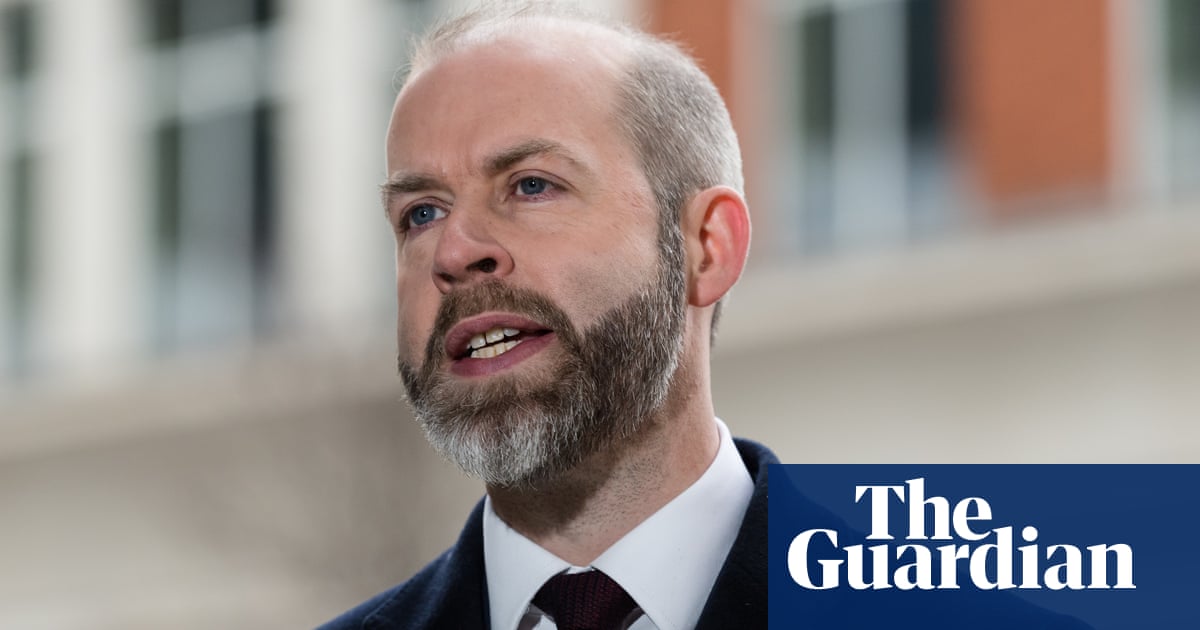Many transgender people in the US are scrambling to shore up their treatments out of fear the incoming Trump administration will follow through on threats to restrict their healthcare.
“My goodness this subreddit has exploded ever since Emperor Trump’s ascendency. Literally overnight almost a thousand newcomers,” read a post just after the 5 November election in one Reddit forum dedicated to sharing advice on gender-affirming hormone therapy.
A popular underground hormone manufacturer stopped taking new orders in order to get through a backlog. “[We] didn’t expect to be hit as hard as we did after the election, the manufacturer wrote on Reddit. The provider, Plume Health, which focuses on gender-affirming care, also noticed “a bump” in inquiries after the election, said Jerrica Kirkley, the co-founder and chief medical officer of the virtual clinic.
Throughout his campaign, Donald Trump promised to cut federal funding from healthcare providers offering gender-affirming care, and said he would “sign an executive order instructing every federal agency to cease the promotion of sex or gender transition at any age” on his first day in office. Trans youth may be the hardest hit – a case that the supreme court will hear this week could cement proliferating bans against trans healthcare for minors.
In response to his win, online forums show that some people are stockpiling prescriptions in case they have to manage their care on their own in the future, researching online and international pharmacies, and in rare cases even synthesizing their own hormones. (The National Harm Reduction Coalition warns that home-brewed hormones may not contain the same levels as prescribed of hormones patients are used to taking, and could work differently and therefore cause different effects, and side effects.)
“No matter the freedoms lost, no matter the hardships that await, no matter the strength of our enemies, DIY [hormone replacement therapy] will always be an option,” the Reddit note read.
While self-managed abortion has attracted a lot of attention since the supreme court overturned Roe v Wade, less has been paid to self-managing gender-affirming care, despite a rich history. Studies indicate that 31% of transgender individuals in London, 49% in San Francisco and 79% in Rio de Janeiro have managed their own hormones without a prescriber at some point.
“People have self-managed hormones for longer than doctors have been managing them,” said Naomi Braine, a professor of sociology at CUNY’s Brooklyn College who’s written about self-managed abortion and gender-affirming hormone therapy. “The emergence of gender-affirming hormone therapy within the medical profession was in many ways pushed by and led by people with experience in self-management.”

Meanwhile, Eli Erlick, a graduate student at the University of California, Santa Cruz, and author of the forthcoming book Before Gender, is urging cisgender people to consider sharing hormones with their transgender peers. (Many cisgender women take birth control or estrogen during menopause, while many cisgender men take testosterone.)
“The moral panic over trans care demonizes the same hormones that politicians’ wives and daughters take,” she she said. “Trans people should have access to these medications, just as their cisgender peers do.”
Self-managing safely
Ahead of the election, the National Harm Reduction Coalition authored a 60-page report on best practices for self-managing hormones – including using new supplies, vetting online pharmacies, and tapping into local and online communities. It notes that people trying to care for themselves should be cautious of allergic reactions when using medications from nontraditional sources, be careful to use clean syringes and test their hormones for other drugs, and watch out for side effects that can come from hormone usage, such as dizziness and blood clots.
“Talk with others in your community who are taking similar hormones to help figure out which sources are safer for your DIY GAHT,” the guide suggests, using the acronym for do-it-yourself gender-affirming hormone therapy. “If you start to feel unwell when taking DIY GAHT, stop taking it and seek medical attention.”
To self-manage safely, transgender people – like many patients managing other aspects of their health – rely on community networks, in person and online. One Reddit community for transgender individuals looking to manage their own care has more than 82,000 members.
“There are a near infinite number of cancer patient communication networks” where people can share information about medication, said Braine. “The sharing of community-based knowledge occurs in a huge number of different contexts. And this is one of them.”
According to the World Health Organization (WHO), the world will face a shortage of an estimated 18 million healthcare workers by 2030. Because 400 million people already lack access to essential health services, the organization has developed guidelines for self-care interventions that people can take to promote their own health.
Since 2019, those guidelines have included recommendations for self-managing abortion. In 2022, the WHO acknowledged the guidelines should be expanded further to include recommendations on self-managing gender-affirming healthcare.
“Ideally, gender-affirming hormone therapy would take place in the context of a supportive health system. However, many transgender and gender-diverse individuals do not have access to such a supportive system. Instead, they may seek to access such therapy through friends, peers and the internet, without consulting a health worker,” the guidelines read.
Other organizations are offering to help trans Americans mitigate the legal risk of self-managing their care – such as If/When/How and the Transgender Law Center, which launched the Trans Health Legal Fund in 2023 to support “trans people facing investigation, arrest or prosecution for seeking healthcare”.
Possessing prescription medications without a prescription is a misdemeanor in most states, but can be charged as a felony depending on the amount and type of drugs – which is especially worth noting for testosterone, a Schedule III controlled substance under the Anabolic Steroids Control Act of 1990.
Kirkley of Plume Health emphasizes that nothing has changed for now – and that trans people have been dealing with restrictions to their healthcare since a wave of state bans on care, mostly for minors, began in 2022. She and her colleagues continue to tell patients that “for the foreseeable future, there’s nothing restricting our ability to provide care”. They recommend leaning on local organizations to “be aware of the reality on the ground and what it means for their healthcare access”.

 2 months ago
57
2 months ago
57













































